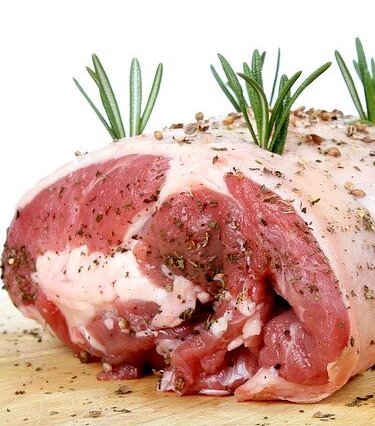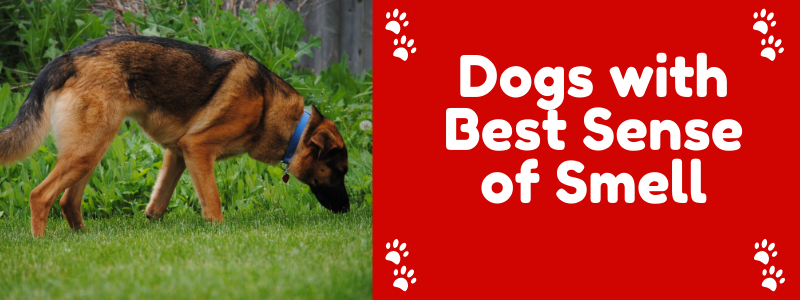The dog is a domestic animal. So you have to fulfill its daily need for nutrients. They fulfill their nutritional needs from a wide variety of sources. Knowing of dog nutrition or canine nutrition as a dog nutritionist is important if you own a dog. So that you must give a balanced diet to your pet dog. Here is a review of dog nutrition facts you need to know when feeding a dog.
Basic Facts You Need to Know as a Dog Nutritionist
Dogs regulate food intake to meet energy requirements. That energy is mainly coming from carbohydrates, proteins & lipids. Their ancestors are wolves & basically, they are also carnivores. The possible dog nutritional requirements percentages of the diet during pre-pet food era was,
Protein 54.4%
Fat 23.7%
Minerals 10.6%
Carbohydrates 11.2%
But researches have now shown that the normal diet of an adult dog includes up to 50 percent weight of carbohydrates. Also, it included 2.5-4.5 percent of fibers. And a minimum of approximately 5.5% of the diet should come from fats & 10% from protein.
Things to Consider Before Feeding a Dog
Before you feed a dog, you have to estimate their body conditions. And they can be categorized as bellow,
1. Very thin- ribs visible, muscle swollen, very small waist
2. Thin- ribs visible, muscle thin, small waist
3. Ideal- ribs not visible, but easily felt, waist proportional, muscle full
4. Overweight- ribs hard to feel, no waist, fat visible over tail & under the rib cage
5.Obese- ribs cannot be felt, waist larger than ribs, fat visible throughout
The growth of the dogs is biologically diverse from 2kg to 100kg. The growth rate is high in the first five months then after six months a plateau.
There are several stages of their life cycle. They are,
1. Neonate – The newborn animals living solely on milk
2. Growing animals – physiologically maturing animal (young adults)
3. Adult animals
4. The pregnant and lactating female
5. Aged animals (old)
Your dog’s unique nutritional requirements will depend on its size, its breed, its stage in life and other factors. So you should be aware of them being a canine nutritionist. And you can use this article as a basic dog nutrition guide and dog nutrition tips.
Let’s discuss 6 main dog nutrition requirements.
7 Types of Nutrients
There are six essential nutrients that a dog needs. Dogs need them in a balanced way to stay healthy.
The first dog nutrition requirement is ENERGY. Energy comes from three major dietary components; carbohydrates, protein and fats. Dogs need a certain amount of energy to maintain their lives’ regular activities. All of these normal energy needs are increased by growth, pregnancy, lactation and exercise.
Energy needs of growing puppies
- Growing puppies require about twice as many calories as an adult dog of the same breed per pound of body weight. Owners should begin feeding puppies at around 4 weeks after birth, as mom’s milk is no longer enough. Food for puppies is best given at many well-spaced meals.
Energy needs of older dogs
- Older dogs consume 20 percent less total calories than medium-aged adult dogs due to lower physical activities and a slower metabolism. They continue to get overweight as dogs grow old.
Energy needs of lactating dogs
- New mothers generally suckle their puppies at least six weeks. With the number of puppies and the week of lactation, the mother needs more calories for up to four weeks.

Carbohydrates(CHO)
This is not an essential dog nutrition requirement. The major sources of carbohydrates in commercial dog foods are cereals, legumes, dog- friendly vegetables and other plant foodstuffs. Carbs fuel your dog’s tissues. Carbohydrates include sugar, starch & dietary fibers. They are a less expensive source of energy than fat and protein. We should give a small amount. Carbo digestion is not efficient when the dog becomes old. Most cooked carbohydrates are well tolerated except for occasional cases of lactose sucrose intolerance.

Protein
Protein is a macronutrient. Most people are not aware of how much protein do dogs need? Dogs can not live on their diets without protein. Dietary protein contains 10 amino acids that dogs can not produce by themselves. Proteins of high quality provide an outstanding balance between all the main amino acids. Dogs can live in a vegetarian diet as long as they have enough protein and vitamin D. Lactating dogs need 28% of the diet as protein. Eggs, dairy products, muscle meat & organs are good sources of amino acids.

Fats & Fatty Acids
Fat derived primarily from animal fats and seed oils from different plants provide the most concentrated energy source in the diet. They include necessary fatty acids that can not be synthesized in the body and are the carriers of important vitamins that solve fat. Food fats tend to enhance the taste and texture of the dog’s food as well. Essential fatty acids are needed for the healthy skin and cover of the dog. On the other hand, they provide your dog energy. Omega-3 family of essential fatty acids is associated with vision problems. Fat based foods are fish, oils, meat(pork), etc.

Minerals
For solid bones and teeth, calcium and phosphorus are essential. Also, for nerve impulses, muscle contraction and cellular signals, dogs require magnesium(Mg), potassium(K), and sodium(Na). Dogs can get too much or too little of specific minerals in their diets. Major bone loss, skeletal abnormalities and pathological fractures can happen with lower usage of minerals as a dog food nutrition. Excess calcium can also cause abnormalities in growing large-breed puppies in the skeleton on the other hand

Vitamins
Vitamins play an important role in dog nutrition. They are organic compounds that take part in a wide range of metabolic activities. The main vitamins dogs need are Vitamin D, Vitamin A and Vitamin E. Dogs require vitamins in their food. They are also critical for the energy conversion of calories. Some vitamins such as vitamin D are not only essential in small doses but also toxic in excess amounts.

Water
Water also a nutritional requirement for dogs. Clean, freshwater should available all the time. Dehydration can avoid if growing puppies have enough body water content. Adult animals also require a high amount of water.
Conclusion
We hope you got some knowledge from this article. We used lots of resources to make this article better. But you may find mistakes. Please don’t hesitate to inform them in the below comment section.





